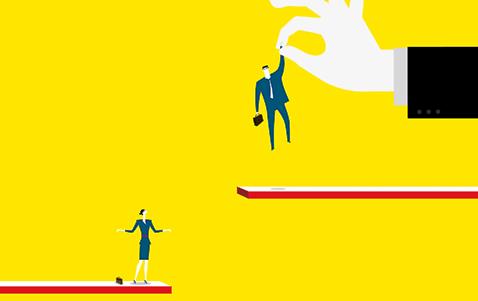Fresh out of law school and ready to solve the world’s problems, a female attorney steps into the courtroom for her first trial. When the judge calls for the plaintiff’s lawyer, she eagerly walks up to the bench, only to be greeted by the judge with, “You must be the court reporter.”
When my good friend shared this experience with a room full of teenage girls, they gasped in horror. Today’s kids have been raised in a world where gender equality was a foregone conclusion, but a new survey by The Florida Bar finds that this isn’t an isolated case. In fact, the legal industry is hampered by bias against women.
The Florida Bar’s 2015 Young Lawyer’s Division Survey concluded that 43% of the State’s young female attorneys have encountered one or more instances of discrimination, ranging from gender bias to harassment. Ninety pages of survey responses detailed chilling experiences that read as if they’re straight out of a legal thriller.
Examples include a woman deterred from climbing the ranks because ‘one day she would marry a man who would take care of her.’ Another female lawyer, fresh off of earning a partnership at her firm, found out that first-year male attorneys were paid more than their female counterparts with similar qualifications.
The survey is already sparking action. Our firm is working with Florida Bar President Ramon Abadin to undertake a public awareness campaign that includes statewide events and direct-to-member outreach based around gender diversity. We are leveraging proactive media relations as an avenue for informing the State’s attorneys and consumer public about the study’s findings, with the goal of encouraging dialogue that leads to solutions.
Righting the ship will require collaboration between the men and women who comprise the legal sector’s next generation. Law school enrollment across the country is evenly split between men and women, and female attorneys hold 46% of the leadership posts at law reviews of the top 50 colleges and universities ranked by U.S. News & World Report.
Beyond instances of bias, the report found that 42% of respondents felt pressure to balance their personal and professional responsibilities. “Our young female lawyers need to know that there is a place for them at the top of our profession and that they do not need to choose between family and career. This will be solved not just through rhetoric but by making systematic changes to the way we work and the culture we create,” said Abadin.
Law isn’t the only sector wrestling with gender bias. The average annual income of women in commercial real estate is consistently 15-20% less than that of men in comparable roles, according to a benchmark study conducted by Commercial Real Estate Women (CREW), an industry group representing more than 9,000 members in 70 markets across the country.
To combat this imbalance, CREW has developed a series of year-round initiatives designed to engage, educate and empower women. Mentoring programs, networking events and in-depth analyses of women’s representation in the field have brought attention to the gaps that exist while equipping members with resources for advancing their careers.
Reversing generations of gender bias permeating some of the largest sectors of business will be no small feat. Progress begins with first acknowledging there’s a problem, informing stakeholders that there’s a will to fix it, and enlisting feedback aimed at identifying solutions. The Florida Bar is on the right track.








 See More Blogs
See More Blogs
Comments